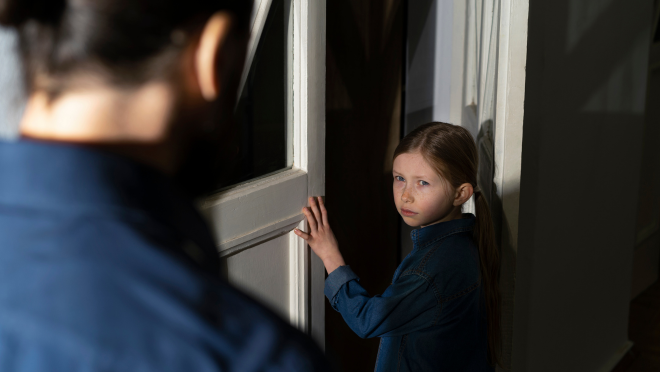‘Do you want a chocolate?’ – The psychological manipulation behind the child abduction of Bangladesh
‘Do you want a chocolate?’ – The psychological manipulation behind the child abduction of Bangladesh

‘Do you want a chocolate?’
A simple, gentle question which never felt unsafe. You might ask, ‘What harm will it do if I have a chocolate?’ But in a country like ours, this question has become a weapon. A way to lure children into the grasp of predators who manipulate them using trust, kindness and most importantly, psychological tactics which children are not aware of.
But a question arises:
Why children as targets?
According to public awareness and even media coverage, girls are the primary target since such sinister plots are traditionally made for girls. But research and real-life actual cases show that all children are unsafe – regardless of their gender. This happens because predators do not discriminate by gender – they only look for vulnerability, just like it’s said that – ‘Tigers only search for food; they don’t see which animal they are attacking.’
The psychological techniques behind the lure
- Grooming
Predators often use this famous technique known as grooming, a slow psychological process where they attack the child mentally first by emotionally manipulating them and building a trusted connection. It all begins with small gifts –
- ‘Do you want a chocolate?’ – the most common one.
- ‘I’ll buy you this toy, but come with me first.’
- ‘You know, I am your dad’s long-lost friend; he asked me to pick you up.’
This technique is known to be the most used one since, according to psychologists, children are cognitively undeveloped and emotional. Not only that, in our country children are conditioned in a way from childhood that they are ‘not allowed’ to disobey elders, which eventually silences the child despite them sensing something bad.
- Operant conditioning
Children’s brains are especially conditioned and sensitive to a thing called ‘reward-based learning’. It’s often seen that children tend to perform better if they are given something in return for their job or praised for whatever they did. According to psychologists, this triggers the child’s brain’s dopamine reward system, which helps the predator to easily manipulate them. - Cognitive vulnerability
Children, regardless of their gender, do not have fully developed judgement or risk awareness. This makes them neurologically prone to trust, especially if they face kindness and authority.
Culture, silence, shame
In a country like ours and specifically in many parts of Bangladesh, there is still a taboo created for conversations like safety, abuse, and ‘bad touch’. From childhood, boys are trained to be ‘strong’ and trained that crying changes their gender. This creates a toxic silence for the boys to voice out, even if they become victims. Speaking of girls, they are often shut down since ‘society’ is a factor and that despite being the victim, their ‘dressing sense was the main issue’ even if the child is a 5-year-old.
Real consequences
May it be kidnapping, sexual abuse or emotional manipulation, when children cannot speak their mind out properly, the aftermath is devastating as children may suffer from –
- Post-Traumatic Stress Disorder (PTSD)
- Chronic fear or anxiety
- Withdrawal and trust issues
- Self-Blame and shame
Once again, it’s not about the gender, but boys bury their trauma since they are conditioned to be ‘strong’ and girls hide due to ‘fear of social backlash and family dishonour’. The environment is such that children become the easily approachable prey, and their pain remains unnoticed.
How to help?
- Teach consent and safety early
Every child should be taught about a ‘good’ or ‘bad’ touch from a young age and the fact that it is okay to say ‘NO’ and fight back - Not talking to strangers
May it be a favourite chocolate or toy, a stranger should never be approached. - Empowering parents
Parents need to move forward beyond fear and embarrassment and teach their kids in a friendly environment about danger and encourage them to speak up. - Break the ‘Gender-biased’ silence
Schools should take an initiative to explain to children how everybody should be treated equally and that everyone needs support. - Strong law enforcement
Law should be made in such a way that any child in danger or victim should get their deserving justice, and the wrongdoers must be punished.
Concluding this is hard, a simple question is enough to light up a child’s mood but enough to darken their future. Before teaching the daughters – ‘Stay silent, our family’s reputation is at stake’ and the sons – ‘You are the man of the family, you should not cry.’ – it’s better to educate the mindset first.


